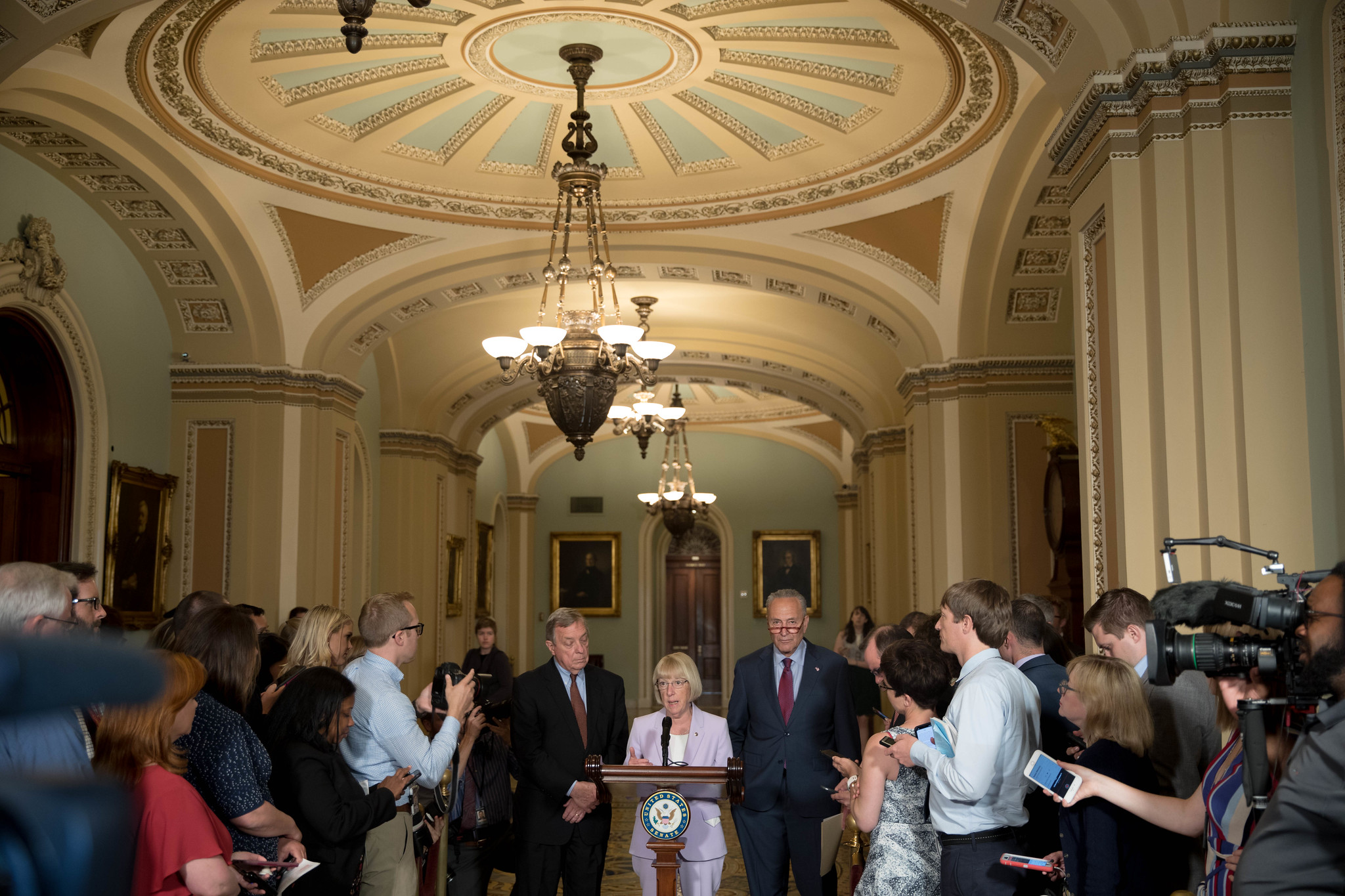ICYMI: Senator Murray Helps Pass CHIPS and Science Act to Lower Costs and Invest in American Manufacturing – MORE HERE
***WATCH: Senator Murray delivers remarks on the CHIPS and Science Act***
Senator Murray: “The CHIPS and Science Act will strengthen our supply chains, boost American manufacturing here at home, and will help lower costs by getting more goods on shelves”
(Washington, DC) – Today, U.S. Senator Patty Murray (D-WA), Chair of the Senate Committee on Health, Education, Labor, and Pensions (HELP), released the following statement on President Biden’s signing of the bipartisan CHIPS and Science Act into law. The CHIPS and Science Act will invest in American manufacturing – especially in Washington state, which ranks among the top ten states in terms of its semiconductor manufacturing workforce. The bill will allow small and medium sized microchip manufacturers to expand and hire more workers, get products on the shelves faster, and lower costs on consumer electronics. When it comes to national security, the CHIPS and Science Act will decrease our reliance on foreign supply chains and make American manufacturing more competitive on the world stage.
“The CHIPS and Science Act will strengthen our supply chains, boost American manufacturing here at home, and will help lower costs by getting more goods on shelves,” said Senator Murray. “This will mean good-paying jobs here in Washington state, less reliance on foreign adversaries for the semiconductor chips that are so critical to everyday life, and it will send a clear message to the world that we are making things in America again.”
The CHIPS and Science Act also:
- Provides $51.5 billion to spur domestic semiconductor manufacturing.
- $49.5 billion to implement a Commerce Department semiconductor initiative and research and development (R&D) programs authorized in the CHIPS Act. This includes funding for an incentive program to focus on legacy chip production to aid critical industries such as the auto industry.
- $39 billion to provide financial assistance to certain entities to incentivize investment in facilities and equipment in the U.S. for semiconductor fabrication, assembly, testing, advanced packaging, or R&D. Under CHIPS, the Commerce Department can make individual awards up to $3 billion.
- $10.5 billion to implement programs such as the National Semiconductor Technology Center (NSTC), National Advanced Packaging Manufacturing Program (NAPMP), and other R&D programs. The NSTC would serve as a hub for conducting advanced semiconductor research and prototyping, while the NAPMP would focus on the challenge of embedding fragile chips into small configurations that combine multiple systems. This will help ensure long-term benefits such as lower costs, increased functionality, and improved energy efficiency.
- Provides a permanent 25 percent investment tax credit for investments in semiconductor manufacturing equipment and facilities. Recipients can elect to receive the credit as a direct payment prior to placing any eligible equipment or facilities into service.
- Boosts base authorization by 77 percent over five years for the National Science Foundation
- $20 billion for the NSF Directorate for Technology, which aims to translate basic research
- $12 billion for STEM education efforts, including scholarships, fellowships, and traineeships
- Provides $11 billion over five years for Department of Commerce Technology Hubs
- $10 billion for 20 regional technology hubs
- $1 billion for the Recompete Pilot Program, which would provide targeted economic development support for persistently distressed communities
- Provides $9 billion, 80 percent over current funding levels, for National Institute of Standards and Technology (NIST):
- $6.9 billion for NIST research
- $2 billion for the Manufacturing Extension Partnership, which supports small- and medium-sized manufacturers
- $829 million for competitive grants via Manufacturing USA
- Boosts Department of Energy Office of Science by:
- $11.2 billion for applied research within the sustainable transportation, advanced manufacturing, industrial emissions, advanced materials, and renewable energy spaces
- $5.2 billion for advanced computing
- $2 billion for fusion energy research
- $7 billion for high energy physics
- $2.75 billion for National Lab infrastructure
###


